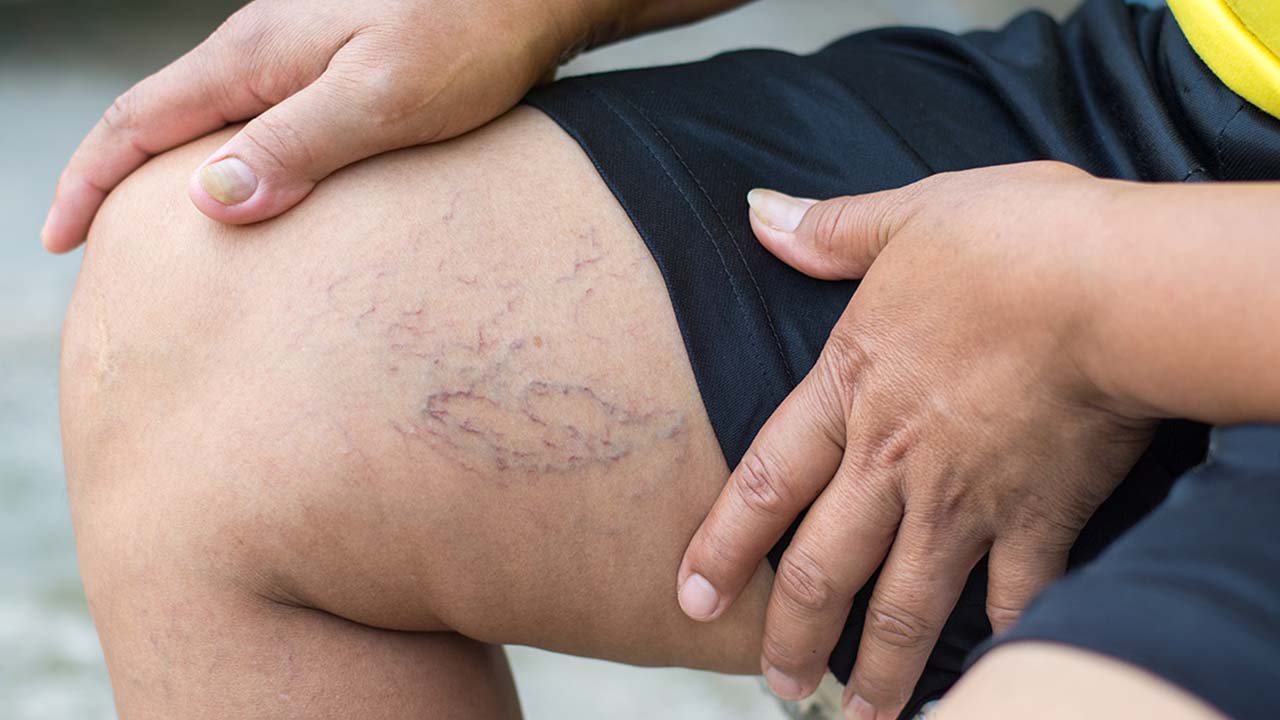Many people complain about enlarged, twisted veins, known as varicose veins. These block the blood flow causing many problems. Sometimes, it is a cosmetic issue; however, it may cause pain at other times. Under severe conditions, it may cause complications like phlebitis, blood clots, and skin ulcers. There may be different treatments and alternative therapies for varicose veins.
Main Causes of Varicose Veins
The deterioration of the veins’ one-way valves is the main contributing factor to this disorder. This valve weakens over time and obstructs blood flow; the blood starts flowing backward and pools in your veins. Eventually, the veins get bigger, and the blood gets blocked. Standing and walking cause a lot of pressure on the veins, so this condition is most common in the legs and feet. The appearance of these veins is blue, and they are bulged cords under the surface of one’s skin.
Varicose veins are more common in women than in men. These can be taken care of at home, and sometimes a doctor’s recommendation may be required. Alternative Therapies for varicose veins and treatments can reduce and mitigate the symptoms and signs.
Signs and symptoms
Varicose veins come with some signs and symptoms; they are:
- Heavy. Tender and aching sore legs
- Swelling of feet and ankles after standing
- The blood vessels turn dark blue and become very noticeable
- Lower legs feel burning
- Itching
- Skin ulcers in your ankles can be severe and may require immediate medical attention
Who is at most risk
- People who have the following conditions are more at risk of varicose veins:
- People having a family history of varicose veins are at a greater risk
- It is three times more common in women than in men
- As a person ages, their veins get older
- Pregnancy, menopause, and premenstrual hormonal changes
- Obesity
- Those who already have an abnormal flow of blood through their veins and arteries
Alternate therapies for Varicose Veins
1. Surgical Procedures
Sclerotherapy: A doctor injects a solution into a varicose vein using this method. This solution scars and closes the vein by making the walls swell and stick together. A compression dressing is then applied, and the flow of blood is stopped, and so this causes the veins to disappear.
Radiofrequency ablation (RFA): It is a minimally invasive procedure that shrinks the tumor and decreases its size; it also erases nodules and other types of growth in a person’s body. Varicose veins are one of the severe conditions that this method is used to treat. To perform this technique, a catheter is threaded into the vein; this heats the vein wall leading to the collapse of the vein and causing it to close.
Laser surgeries: A laser sends a thin beam of radiation in the form of light. This technique shrinks and closes the varicose veins, helping seal off the vein; blood then flows through the nearby veins.
2. Nutrition
Eating food that is rich in dietary fiber or known as whole grains. Dark berries, garlic, dark leafy greens, and onions are great at keeping the veins healthy because they contain bioflavonoids. Supplements like vitamins, including C and E, and zinc intake may also be included in the diet. Bioflavonoids coming from rutin help to relieve aches, swelling, and pain. Bioflavonoids found in grapes seeds and pine barks are known as oligomeric proanthocyanidin complexes; these can help reduce veins’ leakages and increase blood flow.
3. Herbs
Herbal remedies can also help to provide therapy for varicose veins. Herbs are generally dried extracts, tinctures, teas, etc. The most helpful herbs for varicose veins include:
Horse chestnut: Horse chestnut is one of the best herbs for varicose veins. The reputation of this plant is that it reduces the symptoms and indicators of chronic venous insufficiency. This herb should not be used if you are already suffering from a kidney problem or liver problem or are taking medications for blood thinning, diabetes, or lithium.
Pycnogenol: It is a pine bark extract that helps relieve symptoms like leg pain or heaviness. In some cases, it may work better than the horse chestnut. It is known to stimulate the immune system.
Gotu Kola: This herb is known to relieve the symptoms like leakage in veins or swelling of the veins. However, it has some side effects as well.
Butcher’s Broom: This herb will help reduce swelling and can interact with some medications for blood pressure; therefore, it must be used under a doctor’s recommendation.




